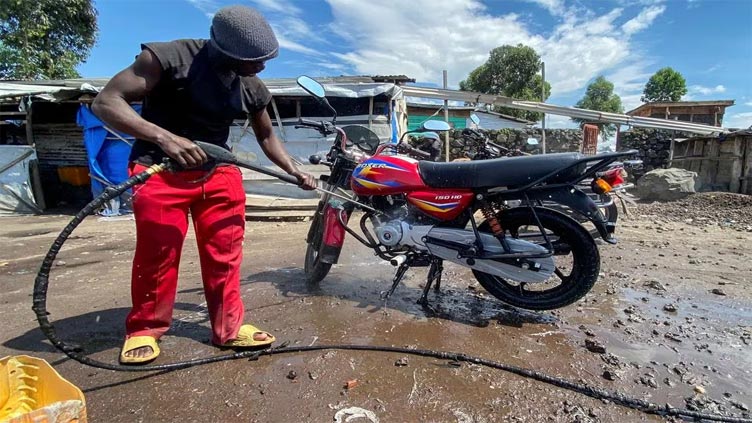In Congo's east, elections dominated by conflict and voter anger

World
Congo's election is dominated by issues including the economy and corruption
GOMA (Reuters) - Conflict defined Ishara Bahati Yassin's childhood, forcing him time and again to flee his home in eastern Congo, where like millions of compatriots he now lives in a crowded camp for displaced people, sharing a tent with three brothers.
At 20, Yassin is eligible to vote for the first time in Democratic Republic of Congo's Dec 20 general elections, when he will bring years of frustration to the ballot box.
"We have never seen change...we've fled wars many times," said Yassin, who resides in a camp in the grounds of a mosque outside the city of Goma in North Kivu province. "There is not one government...that has helped us live in peace and quiet like in other countries."
Congo's election is dominated by issues including the economy, corruption and mining in the huge Central African country of 95 million people. But for many in the east, President Felix Tshisekedi's failure to ease decades of violence looms largest - a reputational weakness that his opponents seek to exploit.
Worsening attacks by armed groups have killed thousands and displaced nearly 7 million people, many of whom live in crowded camps without running water, power or reliable access to jobs and food. The United Nations has described it as one of the world's biggest humanitarian crises.
/cloudfront-us-east-2.images.arcpublishing.com/reuters/NZW5NFZRDJIFXGC3UICQDFNQV4.jpg)
In some areas, insecurity means people will be unable to vote.
"It will be impossible to hold elections in large parts of North Kivu, which is one of the major provinces of the country. And that will, of course, impact the credibility of the election," said researcher Dino Mahtani.
People caught in the middle, like Yassin, struggle to survive. Many direct their anger at politicians in the capital Kinshaha, 1,500 kilometres (900 miles) away, who they say have done little to help.
Yassin makes about $2 a day washing motorbikes, which he uses to buy soap and simple foods. But he wishes he was back picking potatoes in his village of Kibumba.
"Until now, I have not seen one positive thing from the man who won the elections in 2018," he said.
Tshisekedi, who was declared the winner of the last election after a power-sharing deal with his predecessor, faces a challenge from veteran opposition politician Martin Fayulu, who claims to have been the true winner five years ago, and from Moise Katumbi, a former mining magnate.
DETERMINED TO VOTE
Congo's insecurity is in part an unresolved legacy of a civil war that officially ended in 2003. Ethnic rivalries and a tussle for resources continue to fuel tensions, with regional implications.
Fighting intensified under Tshisekedi's watch as the resurgent rebel M23 group carried out a campaign of killings, rape and kidnapping in response to an army clampdown.
M23's recent offensives have sparked a diplomatic quarrel with neighbouring Rwanda, which Congo and UN experts accuse of backing the militia. Rwanda denies involvement.
A Ugandan armed group called the Allied Democratic Forces (ADF) has also expanded its operations with funding from Islamic State, the UN has said, including an attack on school children this year.
Some residents fear things will get worse after Tshisekedi ordered a fast track withdrawal of a UN peacekeeping mission stationed in the east.
"The situation...has deteriorated and it keeps deteriorating day after day after day," said Suzanna Tkalec, the UN deputy humanitarian coordinator for Congo. The camps, she says, are "totally inadequate for a dignified type of life".
The UN says it needed to raise $2.3 billion for its humanitarian response plan for Congo this year, but received just $851 million.
It's not yet clear how insecurity will effect voting. The electoral commission last week asked the presidency to provide aircraft to distribute voting materials, difficult in areas beset by conflict.
Yassin remains determined.
"We are going to vote because we must be able to bring in someone who will bring us change and development once in power," he said.


